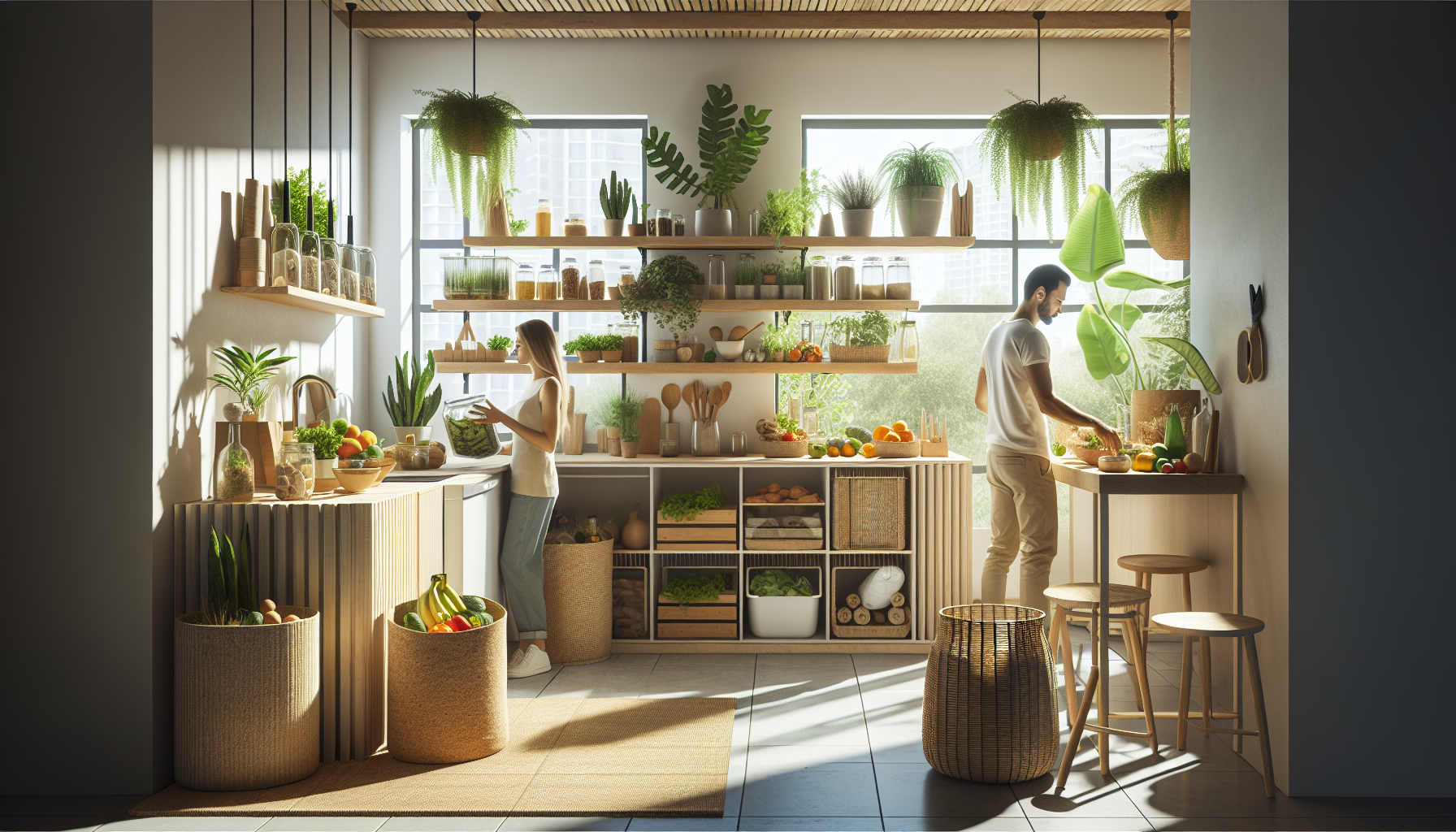Organic Lifestyle Hacks for Apartment Dwellers
Introduction to Organic Living in Small Spaces
Living organically in an apartment might seem like a challenge, but it’s entirely possible with the right approach. Embracing an organic lifestyle isn’t just about what you eat; it’s a holistic way of living that respects your health and the environment. For apartment dwellers, this means making the most of limited space, choosing the right products, and adopting habits that align with organic principles. Let’s dive into some practical hacks that can help you live more organically, even within the confines of your apartment.
Maximizing Your Indoor Garden
One of the cornerstones of an organic lifestyle is growing your own food. In an apartment, this might mean getting creative with your space. Consider vertical gardening, where you use wall-mounted planters or shelves to grow herbs and small vegetables. Not only does this save space, but it also adds a touch of greenery to your home. If you’re short on natural light, LED grow lights can be a game-changer, allowing you to grow a variety of plants regardless of your apartment’s orientation.
Another tip is to choose plants that are well-suited to indoor conditions. Herbs like basil, mint, and parsley are not only easy to grow but also versatile in the kitchen. For a more substantial harvest, consider dwarf varieties of tomatoes or peppers. These can thrive in pots on a balcony or a sunny windowsill.
Composting in Small Spaces
Composting is a vital part of an organic lifestyle, as it helps reduce waste and enrich the soil for your plants. In an apartment, you can use a small composting bin designed for indoor use. These bins are odorless and can handle kitchen scraps like vegetable peels, coffee grounds, and eggshells. The resulting compost can be used to nourish your indoor garden, creating a closed-loop system in your home.
If you’re worried about space, consider a worm composting system, also known as vermicomposting. This method is perfect for apartments because it’s compact and efficient. Worms do the hard work of breaking down organic matter, and you get rich, nutrient-packed compost in return.
Organic Cleaning Solutions
Living organically also means being mindful of the products you use in your home. Many conventional cleaning products contain harsh chemicals that can be harmful to your health and the environment. Fortunately, you can make your own organic cleaning solutions using simple ingredients like vinegar, baking soda, and essential oils.
For example, a mixture of equal parts water and vinegar makes an excellent all-purpose cleaner. Add a few drops of lemon essential oil, and you’ve got a fresh-smelling solution that’s tough on grime but gentle on the environment. Here’s a quick guide to making your own organic cleaners:
| Cleaner Type | Ingredients | Instructions |
| All-Purpose Cleaner | 1 cup water, 1 cup vinegar, 10 drops lemon essential oil | Mix ingredients in a spray bottle. Use on surfaces as needed. |
| Glass Cleaner | 2 cups water, 1/2 cup vinegar, 1/4 cup rubbing alcohol | Combine in a spray bottle. Spray on glass and wipe clean with a microfiber cloth. |
| Scrubbing Paste | 1/2 cup baking soda, 1/4 cup liquid castile soap, 10 drops tea tree oil | Mix into a paste. Use to scrub sinks, tubs, and tiles. |
Organic Eating on a Budget
Eating organically doesn’t have to break the bank, even for apartment dwellers. Start by planning your meals around seasonal produce, which is often cheaper and fresher. Farmers’ markets are a great place to find organic goods at lower prices, and you’re supporting local growers at the same time. If you don’t have access to a farmers’ market, consider joining a community-supported agriculture (CSA) program, which delivers fresh, organic produce directly to your door.
Another way to save money is by buying in bulk. Many organic products, like grains, beans, and nuts, are available in bulk bins at health food stores. This not only reduces packaging waste but also saves you money in the long run. Just make sure you have proper storage containers to keep your bulk buys fresh.
Reducing Plastic Waste
Plastic waste is a significant concern for those trying to live organically. In an apartment, reducing plastic can be as simple as switching to reusable containers for food storage and opting for glass or stainless steel water bottles. When shopping, bring your own reusable bags and choose products with minimal packaging.
Another effective strategy is to avoid single-use items. Instead of buying bottled water, install a water filter in your apartment. This not only reduces plastic waste but also ensures you have clean, safe water at home. For coffee lovers, consider a reusable filter for your coffee maker to cut down on paper waste.
Creating an Eco-Friendly Home Office
If you work from home, creating an eco-friendly home office is another way to embrace an organic lifestyle. Start by choosing energy-efficient electronics and turning them off when not in use. Use natural light whenever possible to reduce your reliance on artificial lighting.
When it comes to paper, opt for recycled products and print only when necessary. Digital note-taking apps can help you go paperless, reducing waste and clutter in your workspace. Additionally, consider using a standing desk to promote better health and reduce the environmental impact of sedentary living.
Conclusion
Living an organic lifestyle in an apartment is about making conscious choices that align with your values. From growing your own food and composting to making your own cleaning solutions and reducing plastic waste, there are countless ways to live more sustainably, even in a small space. By incorporating these hacks into your daily life, you can enjoy the benefits of an organic lifestyle while contributing to a healthier planet.
For more tips on living organically, check out this comprehensive guide on Organic Lifestyle Hacks for Apartment Dwellers. Additionally, learn more about the benefits of indoor gardening from Gardening Know How. Finally, if you’re interested in the impact of organic living on your health, explore this insightful article from Healthline.

